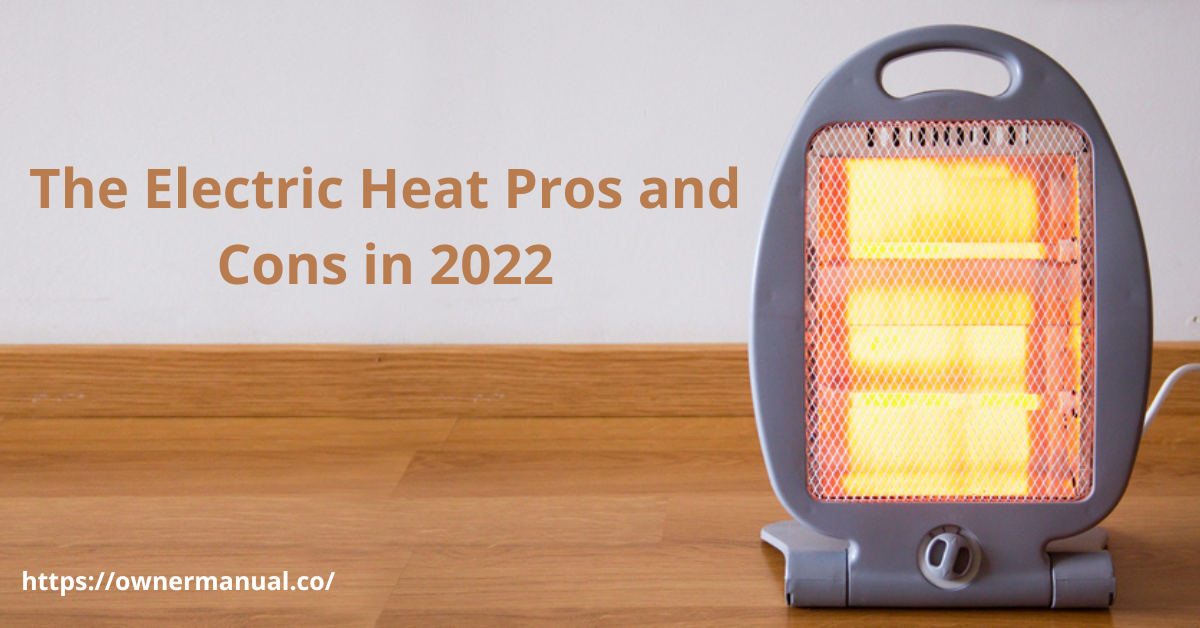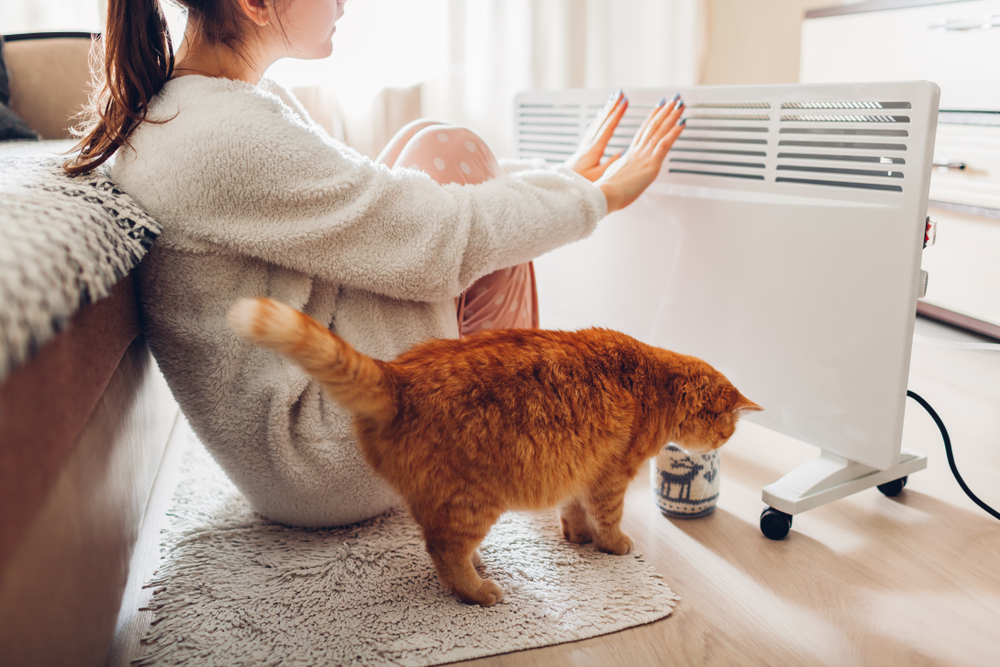The Electric Heat Pros and Cons in 2022

An electric heater is the simplest way to keep your house warm during a cold winter. In this blog, we discuss multiple electric heat pros and cons. Many disadvantages of this type of heating are higher fuel costs. But also many positive sides. For example, Easy to install, has no carbon monoxide and has low heating repair costs. You may get electric heating in many kinds such as;
- Ceiling panels.
- Hydronic heaters.
- Baseboard convection heaters.
- Radiant infrared space heaters.
- Portable compressed air units.
- Electric ovens for the whole house.
Electric heating is known to be quite expensive in the long run. But in our decades of use, we’ve found that you are getting what you have paid for. This heating mode is quite systematic as long as you have well-insulated doors and windows. Also, keep those windows and doors closed when it gets hot.
Table of Contents
Electric Heat Pros and Cons: The Pros

Simple design
It is very easy to understand how electric heat works. Power has routed through the wiring to a heater. With a thermostat, they switch this resistor high, low, on, and off.
Simple parts
Most electric heaters are little more than a large heater resistor, wiring, and a T-stat. It makes the system less likely to fail and is very reliable and cheaper to repair.
Highly scalable
Electric heaters are available in many sizes. These vary from the smallest cube-shaped to the portable quartz heaters. Then it goes on to the 220-volt ceiling spotlights. These huge heaters can warm up an entire basement. You can also buy electric ovens for the whole house. These often cost significantly less than oil or gas central heating.
Electric heat works almost anywhere in the home.
You can heat almost any room with electric heating. You must avoid installing natural gas heaters in bedrooms. However, electric heaters work very well in almost dry, smoke-free places, including bedrooms, children’s rooms, and basements.
No risk of carbon monoxide poisoning
Electric heat produces no fumes under normal use.
Easy to install, repair and replace
Installing an electric heater requires a lot of struggle. The most difficult part of the project was running the power cables across ceilings and inside walls. Also, they typically attach the heaters to the home with simple wood screws. You can quickly remove these fasteners for heater repairs. And when you need to replace the heater, you may quickly undo the simple wire connections to remove the old heater easily.
Easy
Most electric heaters are more portable than kerosene or gas heaters.
No fuel spills
No worries about spilling the fuel with electric heat. You can’t spill electricity, after all. These units are generally lighter. Also, today’s designs have almost no exposed surfaces that are too hot. So you can still move the portable heater to where you need the heat, even when it is hot.
Very sure
There are virtually no suffocation hazards or house fires unless you’ve installed these heaters incorrectly. With electric heating, there are no flames. So, with proper wiring of the heater and supporting fixtures and devices, electric heaters will not shock you.
Can decentralize
Each room can have its own electric heating system and temperature control. It allows for independent temperature regulation from the rest of the house. The system will ensure that each room is optimal, which is a significant advantage over central heating.
Electricity is available more easily.
Electricity is available in more places than natural gas and other fuels. Also, it is cheaper to run wiring to electric heaters than to connect black iron pipes with gas heaters.
Energy efficient
Electric heat generally produces warmer air than a heat pump. It’s quieter than heat pumps. The circulating air electric heaters only have a low-current fan motor.
Fewer maintenance costs
Aside from everyday cleaning, electric heaters require no maintenance. They work until they have done, usually two decades or more.
Fewer single points of failure
Without central heating, you do not lose heat to the rest of the house if one heater fails.
No ventilation required
Does not require venting to the outside through a chimney or wall vent, unlike many fossil fuel heaters.
Electric Heat Pros and Cons: The Cons
Expensive to operate
Larger houses sometimes require 20 KWHs to 30 KWHs to continuously supply sufficient heat. At 15 cents per kWh, that hour of heating could cost as much as $3 to $4.50 an hour. Not bad if you only had to pay for an hour. But an entire January heating month can cost you almost a grand with electric heating.
Noisy
Cheaper electric heaters often emit humming, buzzing, ringing, banging, ticking, popping, whistling, hissing, and squeaking when “fired up.” However, this is far less the case with a hydraulic electric heater. So if you heat your home with electricity, opt for hydronic electric heaters for the quietest heating.
Dangerous
Incorrect wiring can cause fatal electric shocks due to electrical heat. Also, some older heaters can have very hot surfaces. So keep your children away from these heaters. Or ensure that you are installing such heaters out of the reach of children.
Generates very low humidity
It can produce pretty dry air in heated space. It can cause static electricity, nose bleeds, and throat irritation. One of the best electric heaters is a humidifier. It helps keep the warm air in the house humid.
You may need larger service panels.
Heating an entire house with electric heaters will likely require higher current pole-to-house wiring. It is probably true if your service is several decades or older. Also, you will require more branch circuits for each of the heaters. Today, a gas heater usually requires professional plumber services to install. However, as many local codes require, you may need an electrician to install and service your electric heaters.
Conclusion:
While there are many positive aspects of electric heating, it is important to note the potential fire hazard, making it one of the least safe ways to keep warm during the chilly months. As you have read through this blog, we hope you have gained valuable information. Please let us know if you have any additional questions about electric heat pros and cons. You may also download electric heater’s user manuals from our website.